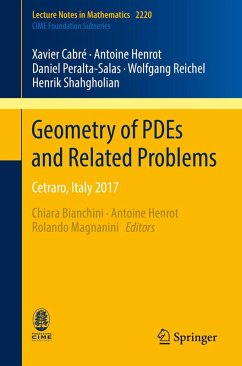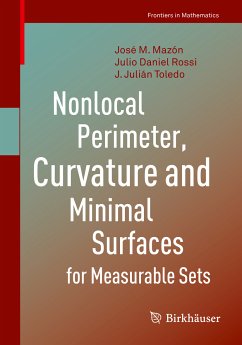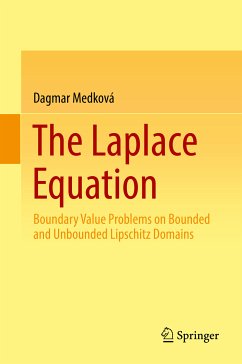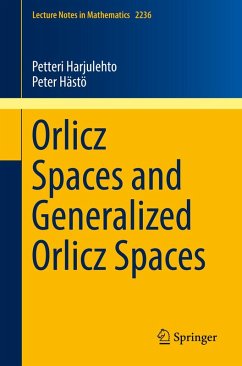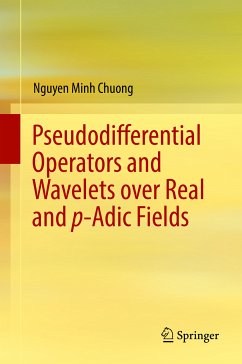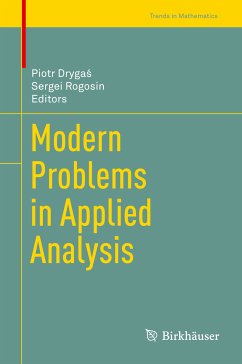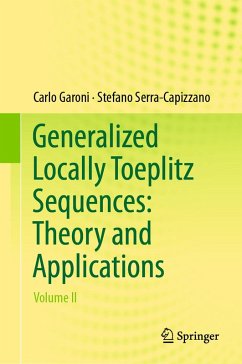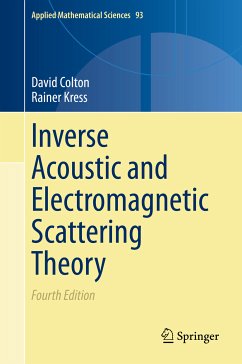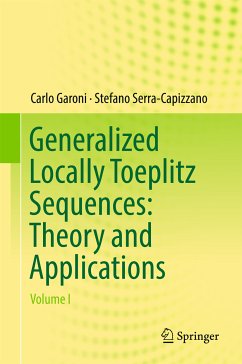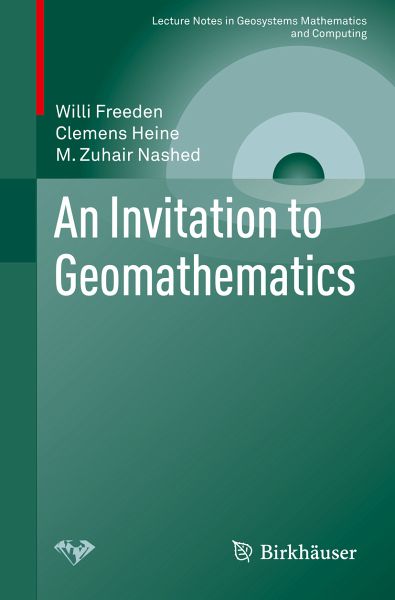
An Invitation to Geomathematics (eBook, PDF)
Versandkostenfrei!
Sofort per Download lieferbar
44,95 €
inkl. MwSt.
Weitere Ausgaben:

PAYBACK Punkte
22 °P sammeln!
The authors introduce geomathematics as an active research area to a wider audience.Chapter 1 presents an introduction to the Earth as a system to apply scientific methods. Emphasis is laid on transfers from virtual models to reality and vice versa.In the second chapter geomathematics is introduced as a new scientific area which nevertheless has its roots in antiquity. The modern conception of geomathematics is outlined from different points of view and its challenging nature is described as well as its interdisciplinarity. Geomathematics is shown as the bridge between the real world and the v...
The authors introduce geomathematics as an active research area to a wider audience.
Chapter 1 presents an introduction to the Earth as a system to apply scientific methods. Emphasis is laid on transfers from virtual models to reality and vice versa.
In the second chapter geomathematics is introduced as a new scientific area which nevertheless has its roots in antiquity. The modern conception of geomathematics is outlined from different points of view and its challenging nature is described as well as its interdisciplinarity. Geomathematics is shown as the bridge between the real world and the virtual world. The complex mathematical tools are shown from a variety of fields necessary to tackle geoscientific problems in the mathematical language.
Chapter 3 contains some exemplary applications as novel exploration methods. Particular importance is laid on the change of language when it comes to translate measurements to mathematical models. New solution methods like the multiscale mollifier technique are presented. Further applications discussed are aspects of reflection seismics.
Chapter 4 is devoted to the short description of recent activities in geomathematics.
The Appendix (Chapter 5) is devoted to the GEM - International Journal on Geomathematics founded ten years ago. Besides a detailed structural analysis of the editorial goals an index of all papers published in former issues is given.
Chapter 1 presents an introduction to the Earth as a system to apply scientific methods. Emphasis is laid on transfers from virtual models to reality and vice versa.
In the second chapter geomathematics is introduced as a new scientific area which nevertheless has its roots in antiquity. The modern conception of geomathematics is outlined from different points of view and its challenging nature is described as well as its interdisciplinarity. Geomathematics is shown as the bridge between the real world and the virtual world. The complex mathematical tools are shown from a variety of fields necessary to tackle geoscientific problems in the mathematical language.
Chapter 3 contains some exemplary applications as novel exploration methods. Particular importance is laid on the change of language when it comes to translate measurements to mathematical models. New solution methods like the multiscale mollifier technique are presented. Further applications discussed are aspects of reflection seismics.
Chapter 4 is devoted to the short description of recent activities in geomathematics.
The Appendix (Chapter 5) is devoted to the GEM - International Journal on Geomathematics founded ten years ago. Besides a detailed structural analysis of the editorial goals an index of all papers published in former issues is given.
Dieser Download kann aus rechtlichen Gründen nur mit Rechnungsadresse in A, B, BG, CY, CZ, D, DK, EW, E, FIN, F, GR, HR, H, IRL, I, LT, L, LR, M, NL, PL, P, R, S, SLO, SK ausgeliefert werden.



